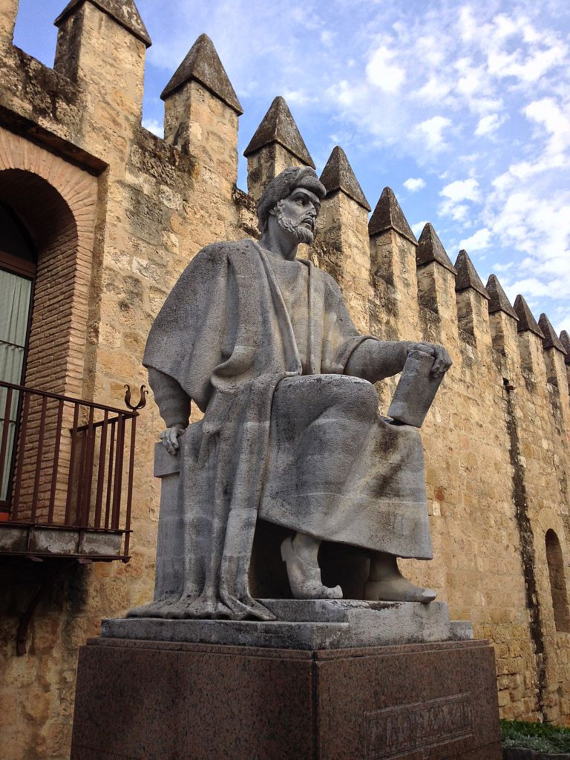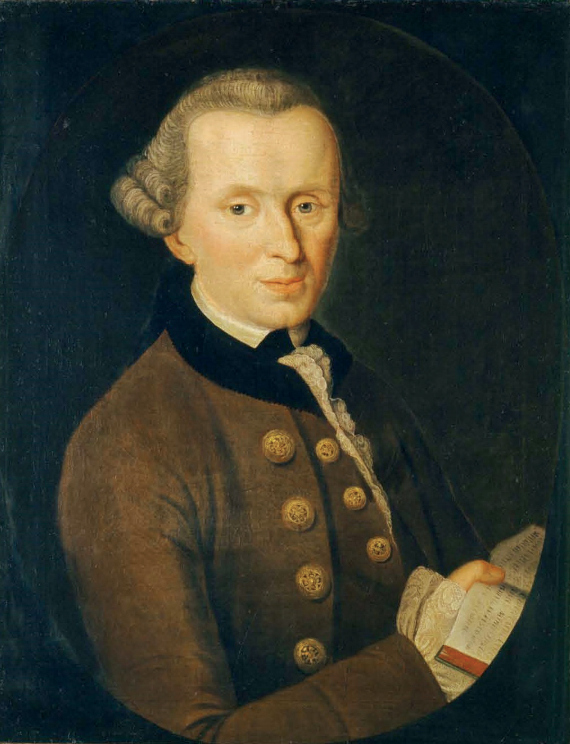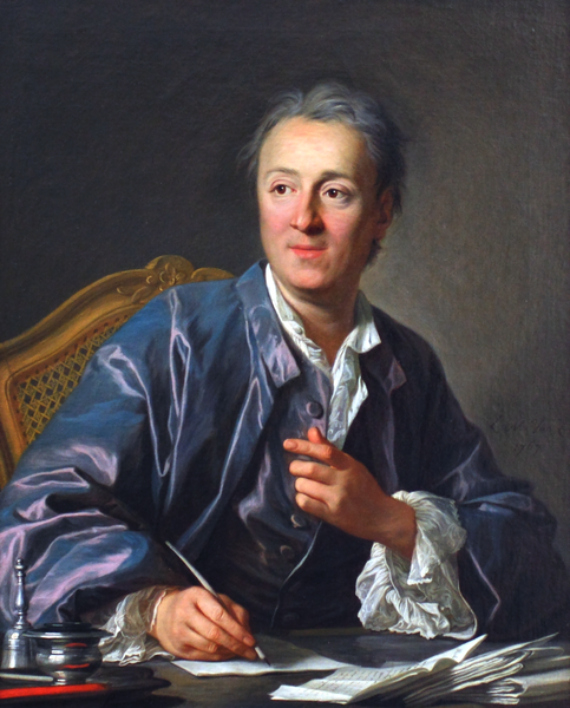Editor’s Note: This is the third in a three-part series exploring the relationship between neuroscience, philosophy, and society. The first part can be found here, and the second part can be found here.
This post presents a neurophilosophical critique of the origins and legacy of the Enlightenment, as well as of the common misreading of the notion of rationality and of ‘progress through reason’ that is credited to the movement. New insights into human nature, now made possible with the tools of neuroscience, invalidate the classic divide between ‘rationality’ and ‘emotionality’ and open the way for new paradigms of governance and, hopefully, for a ‘new Enlightenment’.
Precursors to Enlightenment/ Non-Eurocentric origins
The Enlightenment is commonly described as “revolutionary” but its inspiration from Antique and non-European works and ideas remains an uncomfortable and less-acknowledged fact.
In the 12th century, an Arab Muslim philosopher, Ibn Tufayl wrote a philosophical novel called Hayy Ibn Yaqzan (the book was written in 1160 or 1170), translated as ‘The living son of the Vigilant’. The book is the story of an autonomous individual born on an island, without parents, religion, history or language. He is a self-sufficient individual, who is guided by reason to reflect on his situation and identity, and through empirical investigations, scientific and philosophical inquiry he untangles many mysteries of biology, astronomy, physics; he is nevertheless confronted with his limitations once he attempts to have a glimpse of the divine. The story of Hayy (who finally meets another stranger and moves to an inhabited island), is a celebration of human reason, self-reliance and free will, all the while praising diversity and the uniqueness and worth of every individual.
The book was first translated into Hebrew in 1349 and a century later in Latin. It was widely read by Western thinkers and inspired many philosophers, including some of the lead figures of Renaissance and the Enlightenment. In fact, ‘doubt’ and skepticism as cornerstones of philosophical methods, typically attributed to Descartes, were greatly encouraged by Ibn Tufayl and many other thinkers before. Other Arabic philosophers such as al-Fārābī, Avicenna and Averroes also influenced Western philosophy and Enlightenment significantly in areas like logic, ethics, psychology, and metaphysics.

Source: Wikipedia
The divide between the East and West began before the period of the Enlightenment but it would appear the 18th century marked a grand moment of rupture. The story most often told is that of European rationalist philosophers encouraging the emancipation of the mind, the search for truth through evidence and science, while the rest of the world lacked the energy for innovation. The notion of the insular emergence of the Enlightenment and the misleading fixation on rationality (understood as some sort of mathematical process devoid of any subjectivity) perpetuated many fallacies about the Enlightenment.
A neurophilosophical reading of the Enlightenment can help further flag these errors, as well as lay the groundwork for a new era of Enlightenment.
Not one ‘reason’ but many
The genesis of the Enlightenment almost always begins with a reference to the 1784 essay, “An answer to the question: What is Enlightenment”, by Immanuel Kant in which he suggested the following definition: “Enlightenment is man’s emergence from his self-incurred immaturity. Immaturity is the inability to use one’s own understanding without the guidance of another.” The motto of the new era was, according to Kant, the Latin phrase “Sapere aude!”, or ‘dare to know’. The Enlightenment was premised on the renunciation of dogma, prejudice, and the “mechanical instruments” of thinking, as Kant called them, that prolonged man’s immaturity. The Enlightenment movement is most generally known for encouraging the cultivation of one’s own mind, and of one’s own capacity for reason.

Source: http://www.philosovieth.de/kant-bilder/bilddaten.html
The scientific revolution in the 16th and 17th century pushed for these transformations as previous conceptions of the world started to be demystified. New scientific methods and especially the advancement of natural sciences challenged existing conceptions of nature and contributed to the rise of empiricism and a greater faith in human cognitive faculties to decipher the world.
However, contrary to a narrative that is too often simplified, this did not always mean that reason alone was regarded as an undisputed source of knowledge, or that humans were considered to be perfectly rational beings. In fact, the premise of knowledge through sense experience was equally part of the Enlightenment epistemology (John Locke’s Concerning Human Understanding is a foundational text for the Enlightenment). The interest in sciences and scientific knowledge did not negate the role of subjectivism or ‘sensationalism’, as Locke’s epistemology professed at length: the source of most human ideas was in senses. This idea was very influential with French Enlightenment and was taken up by French philosophers such as Etienne Bennot de Condillac, who took it to more radical conclusions that all human knowledge originated in sense experience. Moreover, in order to be as close as possible to sensuous experiences, Condillac favored ‘primitive’ languages, which communicated in simpler rather than abstract terms. This also meant that rationality was defined by plurality, varying from one place to another.
There was, as a result, no such thing as one rationality. The focus on sensibility and passions was also present in some conceptions of morality, and even scientific knowledge. For Diderot, co-founder of the Encyclopédie (for which he wrote 7,000 articles), reason was important in the pursuit of truth but passions and sense experience were no less crucial in building moral sensibilities. In fact, without the ability to be affected, one could not be truly moral. At no point was this meant as a rejection of science. Sensibility was in fact an asset in pursuing science according to Diderot because it allowed for a great attention to and appreciation of nature.

Source: Wikipedia
Nor did the Enlightenment reject God or theological thinking in its entirety. Descartes grounded all knowledge, including scientific knowledge in metaphysical knowledge of God. Kant strongly opposed the theocentric conception of knowledge and replaced it with an anthropocentric conception. However, for Kant rational knowledge was limited to the domain of possible experience and to understanding the causal laws of nature.
Political Enlightenment
Ideologically and politically, the Enlightenment is associated with a series of political movements and revolutions that changed the course of history. Three political revolutions in particular are presented as accomplishments of the Enlightenment: the English Revolution (1688), the American Revolution (1775-1783) and the French Revolution (1789-1799). The revolution in thinking about the natural world emboldened a critical spirit and ethos to re-make the social and political order too. The existing social and political order, founded on a great deal of traditions and myth, became questioned and contested. Why should any political authority be considered divinely ordered or unquestionably immutable? Indeed, the Enlightenment period is credited for inspiring the consolidation of the basic model of government founded on the ideal of personal freedom and equality, and the rational consent of the governed. The limits of ‘reason’ in government were, nevertheless, questioned as the French Revolution transgressed into its darker days with the Reign of Terror.
While a general point can be made that the political theories of the Enlightenment movement advocated liberalism based on freedom and equality, the rich texture of the Enlightenment attests to its complexity and diversity of thought. The Enlightenment was not a single event, and it was “pluralized geographically and thematically”. Later, in the 19th century, Romanticism emphasized the ‘non-rational’, traditions and subjectivity and that encouraged the view that the Enlightenment was excessively rational. Not only is that not accurate, but revisionist histories contest the tendency to demarcate movements in history according to the customary understanding of “periods”.
Nevertheless, the fallacy of misrepresenting history in monolithic blocs remains, sadly, common. So is, largely, the misconception that Enlightenment was only about scientific and political progress, and triumph of reason over passions and superstition. The basic truth remains that Western thought (and not only) simplifies the meaning of the Enlightenment, adorning it with labels that are misguiding, or politically expedient.
Neurophilosophy and governance: a paradigm for a new Enlightenment
It is at this point that I want to make the leap to the 21st century. The succinct exposé in the previous section reveals the intuition that many philosophers of the Enlightenment had about the connection between emotions and ‘rational’ choices, a connection demonstrated by neuroscience in recent decades. In light of an evolving understanding of the human brain, and human nature, it is time we re-assessed some of the fundamental tenets that political philosophy relied on in past centuries, as well as considered how a new Enlightenment era can be carved for the 21st century.
Starting in the 1980s, an interdisciplinary dialogue between philosophy and neuroscience started to integrate findings about the human brain into inquiries about human nature and ethics. Neurophilosophy debunked many long-held beliefs in political philosophy, especially about the limits of human rationality and the intimate connection between emotionality and cognition. In neuroscientific terms, we know that the Stoics’ aversion to emotions as threats to reason and, ultimately freedom, is unfounded. We are all ‘slaves’ to emotions insofar as it is through emotions that numerous learning mechanisms are consolidated in the brain, including fear-conditioned responses, which are ultimately crucial for survival.
The long-standing dichotomy in epistemology between empiricism and rationalism contrasted the position that sensory experience is critical to knowledge (empiricism) with the strong view that reason is essential to all knowledge (rationalism). However, neuroscientific evidence paints a more nuanced picture about how knowledge and beliefs are acquired, and this points to far closer connections between sense experience – emotionality – ‘rational inference’ than previously thought. This knowledge paradigm, which I called ‘neuro-rational physicalism’ (NRP) explains more holistically the process of knowledge formation, with important conclusions for our discussion of Enlightenment. NRP shares the empiricist view that sensory data is a source of knowledge; however, neuroscientific research also demonstrates that knowledge also comes from employing reason and inferences – it must be underlined that ‘reason’ in a neuroscientific sense is also informed by some minimal in-built predilections in our nature (the most critical of these is the predisposition for survival and therefore, we will most likely always choose the course of action that enhances the chances of survival) and it equally integrates, and overlaps with, emotional regions in the brain. Indeed, rationality and emotionality are not different, dual processes in the brain. Knowledge is therefore hardly ever complete because its sources are biased, subject to interpretation and to inputs from prior assumptions, which are cultivated in one’s surroundings, education, cultural background and other personal experiences.
NRP is premised on the neuro-biological foundation of human nature, which means that thoughts and knowledge are physical processes insofar as everything is physical (neurobiologically speaking) because, although invisible to the eye, thoughts, memories, perceptions are always mediated through neurochemistry and thus have a physical base. The idea of physicality of knowledge and mental processes has been contentious in philosophy (as elaborated in a previous post) but is common among neuroscientists.
At the same time, a paradigm about knowledge is inseparable from human nature.
With insights from neuroscience I previously theorized that human nature is defined by three fundamental characteristics: emotionality, amorality, and egoism.
Emotional processing in the brain is tightly intertwined with decision-making, learning, and a host of other cognitive processes. Humans are in fact far more emotional than rational, and there is a profound connection between emotions and decision-making. For example, chronic stress leads to neural atrophy in the medial prefrontal cortex and the dorsal medial striatum, a neural circuitry that is typically involved in setting goals. Simply put, extreme stress, such as conditions of fear and survival-threatening situations, will favor decisions that can ensure immediate rewards and maximize one’s chances of survival. (See a previous post) External circumstances are crucial for cultivating the best in human nature, and ‘rationality’ or our capacity for moral decision-making cannot be expected in the absence of external circumstances that ensure, at the very least, the minimum for survival.
Amorality is the second dominant feature in our nature. Humans lack inborn notions of good or bad, and it is the environment and circumstances in their lives that contribute to shaping each individual’s moral compass. It is therefore neither morality, nor immorality that defines us but amorality. Yet, although largely a blank slate, humans do have a hardwired predisposition, which is the predisposition for survival. Insofar as the basic quest for survival guides human actions, the human mind is not entirely a tabula rasa, as John Locke believed, but a predisposed tabula rasa. Everything beyond that is acquired, defined and refined through experience (including morality and ‘reason’). It is here that human egoism comes into play. Pursuing actions that maximize the chances of survival of the self is a basic and primordial form of egoism.
A neurophilosophical understanding of human nature, which stresses the central role of emotions in human behavior, does bear resemblance to many ideas put forward by the Enlightenment movement. The Enlightenment philosophers certainly valued reason, but did not take it to mean that humans could be perfectly rational. Nor did they, as we have seen, dissociate emotions from good judgment.
Good governance
In the 21st century, as politics is increasingly defined by a resurgence of nationalistic bias, tribalism and exclusionary practices, it is common to decry an apparent estrangement from the legacy of the Enlightenment, which was understood to be solely about individual autonomy and reason. This is, as H.M. Lloyd rightly observes, a pathology of Western thought that has equated modernity with positivist science and cool-headed reason. Not only is this conclusion about the Enlightenment simplistic, but it is also increasingly dangerous as it is often used to pit a rational and secular West against an irrational ‘other’ (or rather, whose rationality is intertwined with teleology and emotionality). Furthermore, a neurophilosophical approach to human nature demonstrates the salience of emotions in our existence, as well as the incredible frailty of our nature. Circumstances in our environment can push us to acts of unspeakable cruelty, just as it is also the environment that can enhance our propensity for (pseudo)-altruistic acts.
We are inescapably emotional insofar as emotions and cognition are intimately connected. Our best chance of survival and thriving is through good governance, which balances the ever-present tension between the three attributes of human nature (emotionality, amorality and egoism) with human dignity. I define dignity to mean more than the absence of humiliation. It is a comprehensive list of nine needs that includes: reason, security, human rights, accountability, transparency, justice, opportunity, innovation and inclusiveness. Dignity-based governance is the single best predictor of peace and social cooperation, and dignity is even more important and more inclusive than freedom. Even as we look at advanced Western democracies that guarantee ample liberties to all citizens indiscriminately, the existence of those liberties coexists with conditions of marginalization, acute poverty and alienation. A focus on dignity is needed for humanity to go forward.
Neurochemistry of power
There is arguably no clearer proof of the salience of emotions in politics than when it comes to political power. The main neurochemical (known to date) involved in the reward of power is dopamine, the same neuro-transmitter involved in the feeling of pleasure. Power activates the same neuronal circuitry; once ‘activated’, it will produce the same ‘high’ that is typical of any addictive behavior. These cravings at the neurocellular level are no less intense than the craving for cocaine or any other potent drug. This means that people in positions of power will do anything to maintain and – if possible – to increase their power even if that means resorting to brutality, cruelty and acts of ‘irrational violence’. History is full of such examples.
Given the highly addictive character of political power, only an emphasis on checks and balances, separation of powers and fighting loopholes in political systems can protect against abuses or misuses of power. This is the case for politics and any leadership roles – from governments to corporate and academic positions. Strong institutional barriers and fixed-term limits are critical for truly Enlightened power structures.
Lessons for a new Enlightenment
An enlightened 21st century (and future centuries) will need to focus on human dignity (in its holistic sense, mentioned above), both individual and collective. One of the most valuable lessons of human history is that any ideas, ideologies and regimes that repeatedly ignore the attributes of human nature and human dignity needs, failed, even if sometimes it took decades or longer for the demise to take place. For ideas to pass the test of time, they must account for the emotional, amoral and egoistic characteristics of human nature and balance these attributes with the corresponding nine dignity needs.
There is also a powerful dimension of dignity at the collective level. We now know that dichotomizing cultures and civilizations as rational/secular vs. traditional/irrational misreads the rich legacy of Enlightenment thought. This also comes with heavy consequences in terms of global mistrust and insecurity. A truly enlightened future for humanity will need, instead, to recognize the worth and contribution of every geo-cultural domain to the legacy of mankind.
I previously referred to this as ‘the ocean model of civilization’: a more judicious interpretation of historical inheritance that sees human civilization like an ocean into which many rivers flow and add depth. Anything from philosophy, astronomy, sciences, medicine, architecture or legal thought in the Western world is in fact a product of centuries of exchanges and interactions with the non-Western world, including China, India, and the Arab-Islamic world, which was for a long time the epicenter of scientific inquiry and debate, and immediately preceded the European Enlightenment.
Comments on this publication